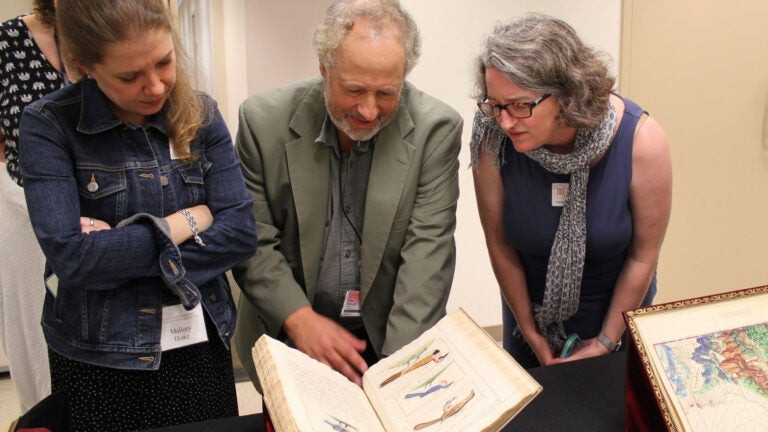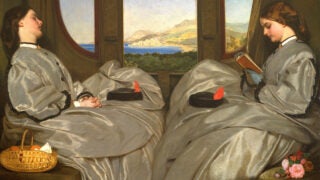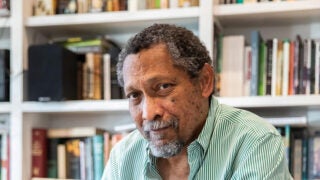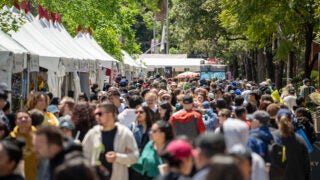
USC helps teachers from around the U.S. get rare access to colonial era history
The USC-Huntington Early Modern Studies Institute inspires 35 middle and high school teachers to teach students about the latest scholarship on the early American experience
Many adults can remember at least one teacher from high school or middle school who inspired them to love a subject and make it their own. It’s an invaluable experience in setting students on the path to higher education.
For the fifth year running, the USC-Huntington Early Modern Studies Institute, based at the USC Dornsife College of Letters, Arts and Sciences, is increasing the chances of that happening for nationwide students in middle school through high school.
Through the institute’s annual summer seminar, “America in the Age of Discovery: 1492-1625,” 35 teachers from across the country gained insight into the latest scholarship on the early American experience.
“When we’re in this moment where people are saying that humanities aren’t relevant, here is one direct encounter where you take humanities scholars and historians, and put them together with school teachers so we have a better informed and educated citizenry,” said Peter Mancall, Andrew W. Mellon Professor of the Humanities and professor of history and anthropology.
Mancall co-led the annual session in June with Robert Ritchie, former director of research at The Huntington Library, Art Collections and Botanical Gardens, the institute’s partner institution.
This is one of the ways for universities to … play a direct role in the improvement of education in general by working with teachers.
Peter Mancall
“This is one of the ways for universities to be involved in discussions with a wider public and to play a direct role in the improvement of education in general by working with teachers,” Mancall said.
An opportunity to spend a day at The Huntington gave teachers rare hands-on experience with early colonial era texts dating from the 16th and 17th centuries. Daniela Bleichmar, associate professor of art history and history at USC Dornsife, gave lectures on early Mexico.
As a bonus, the session offered teachers the opportunity to learn about the Spanish mission system with a visit to the San Gabriel Mission with Steve Hackel of the University of California, Riverside.
Colonial era history: access to advanced scholarship
The USC-Huntington Early Modern Studies Institute primarily supports advanced scholarship by graduate students, postdoctoral fellows and faculty members on the cutting edge of their disciplines, whether in history, art history, literature or music, Mancall noted.
“We use this seminar as an opportunity for us to take the benefits of that scholarship — including our ideas and access to materials — and share it with an audience that wouldn’t otherwise have access to it,” he said.
In his talks about how the arrival of Europeans changed the lives of native peoples, Mancall discussed how Europeans imported diseases and enslaved native peoples. He also addressed the contrasts between indigenous religion and various forms of Christianity.
Mancall said it is very important for the institute to show the direct connections between the period of history they are studying and the modern world.
“It’s part of [the institute’s] goal,” he said. “We talk about the centrality of the humanities — of history, literature and the arts — to the world around us.”
Spreading the word
Teachers are tapped to participate in the seminar based on a rigorous national competition organized by The Gilder-Lehrman Institute for American History, a leading nonprofit dedicated to K-12 education, which funds each year’s seminar.
Mancall said the teachers come because they believe they can do a better job teaching if they know what prominent scholars in their field are talking about.
“They spend the week with us and then they go back and spread the word,” he said.
Another reason teachers are so excited to participate, he noted, is because their textbooks may be 10 or 20 years old and contain information that is incorrect and outdated.
An educational expert from Gilder-Lehrman attended the sessions and helps translate the historical content provided by USC Dornsife scholars into middle and high school lesson plans.
“You can see the direct application of what we’re saying and how it’s going to be taught to students in seventh or 10th grade or in United States and world AP history classes,” Mancall said.



